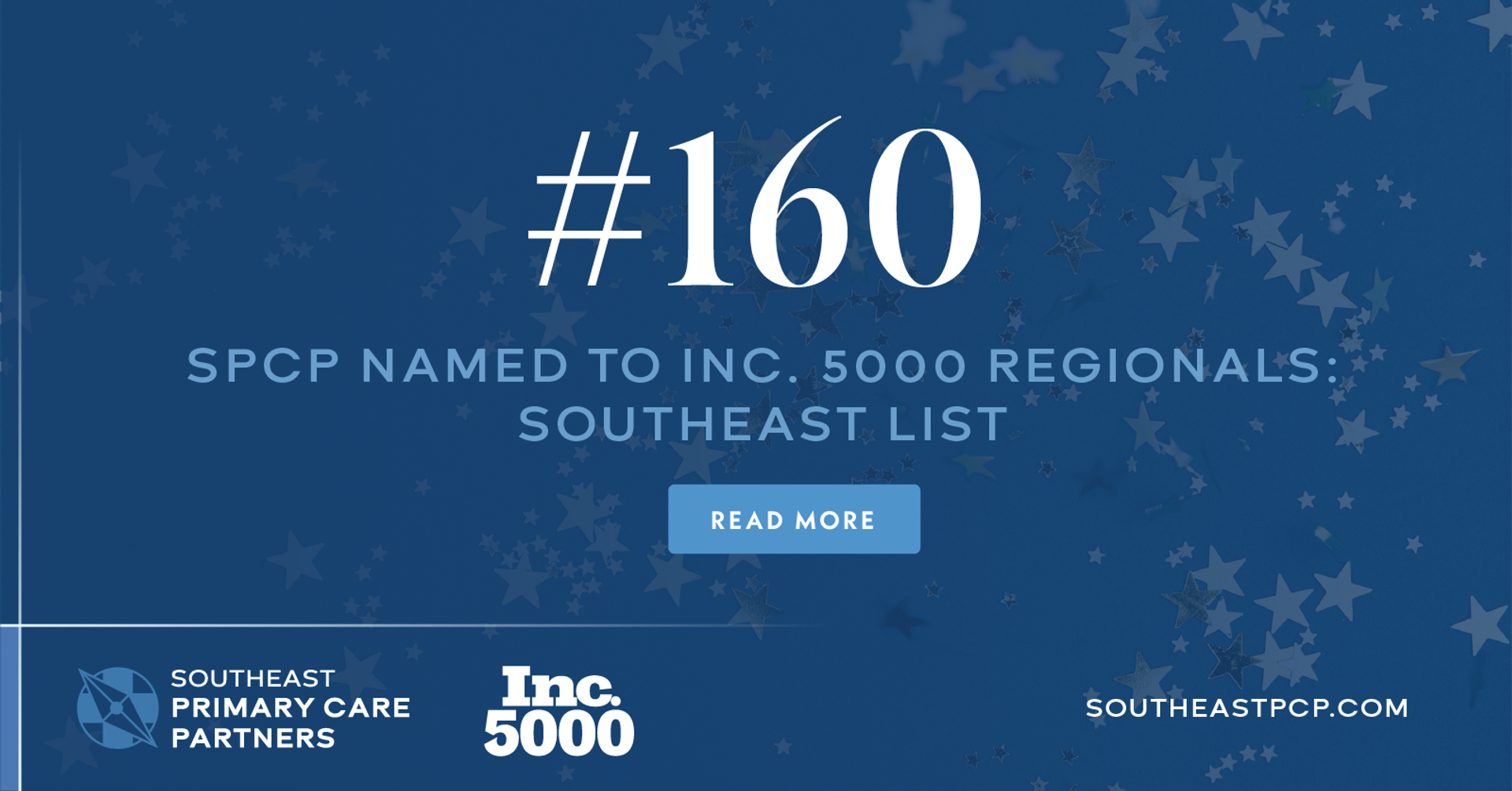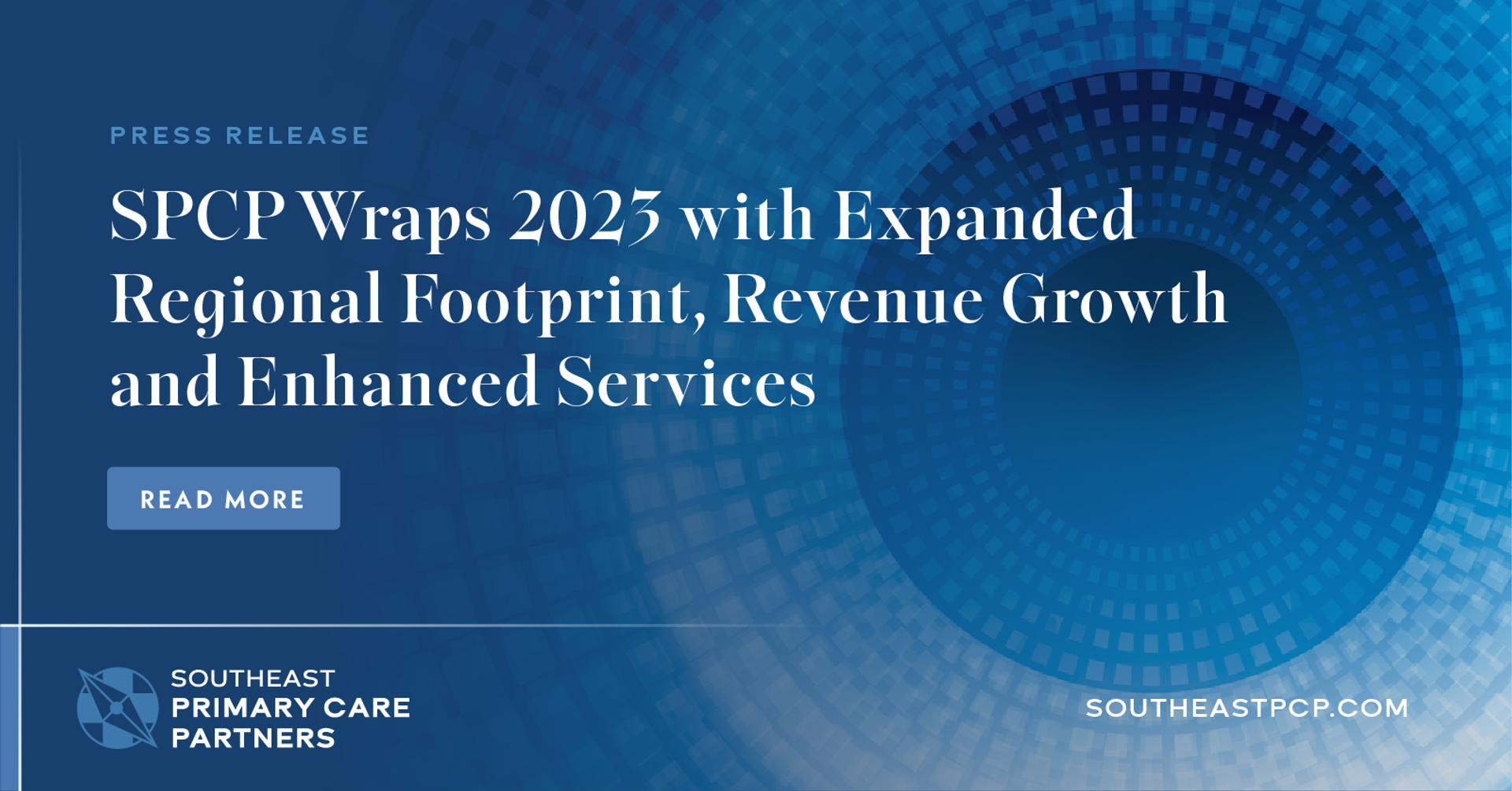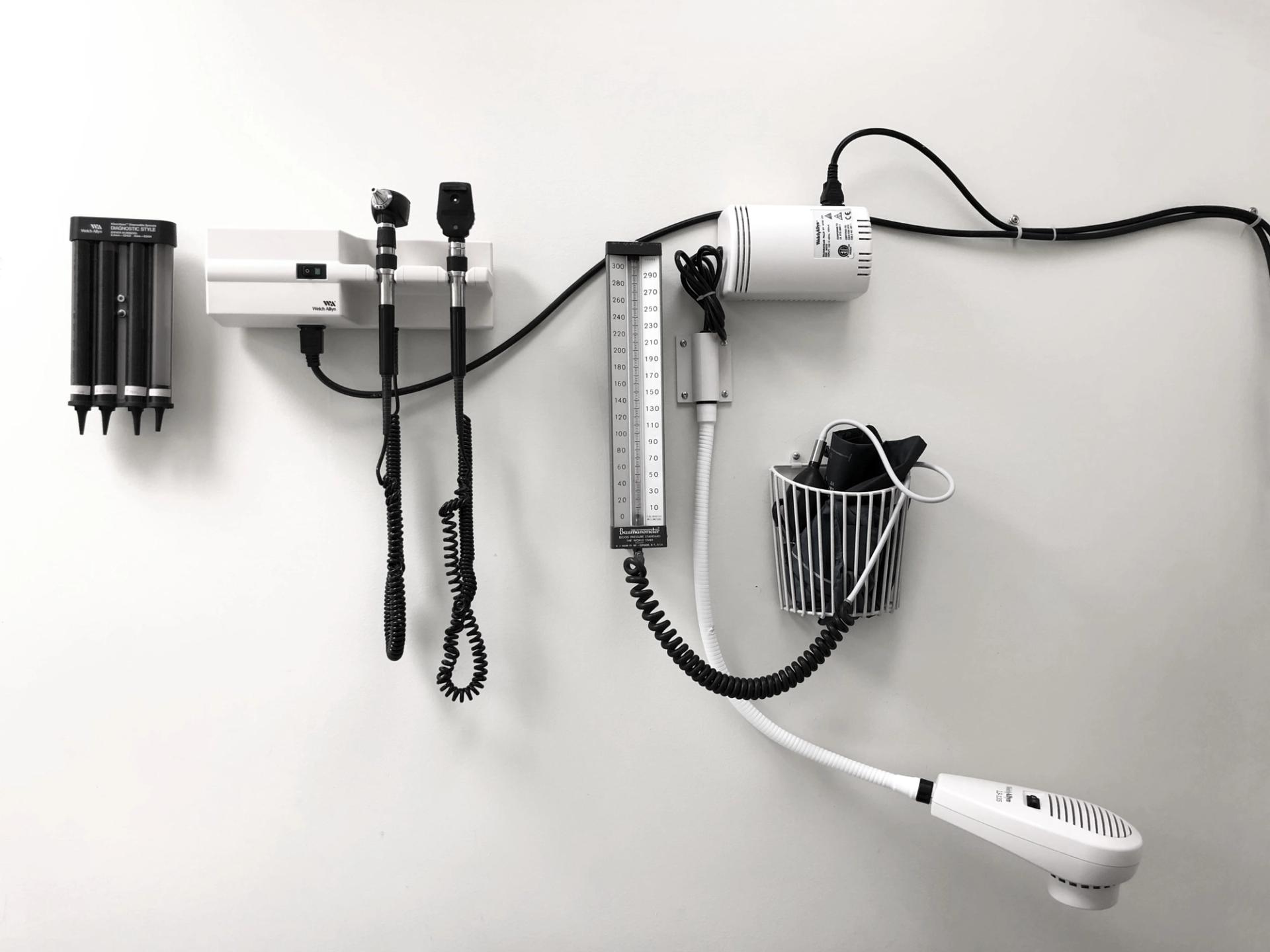
Written by Southeast Primary Care Partners
Technology Integration: Enhancing Patient Care While Maintaining Independence
Technology Integration: Enhancing Patient Care While Maintaining Independence
In today’s fast-paced world, the integration of technology into healthcare has revolutionized the way patients receive care. With advancements that allow for better management, diagnosis, and treatment, the marriage of technology and healthcare presents endless possibilities for improving patient outcomes. But amidst this innovation, one critical priority remains: maintaining patients’ independence. For many, the desire to age or navigate health challenges with dignity and autonomy is paramount.
This article takes a closer look at how integrating technology enhances patient care while upholding independence. From wearable devices that track vital signs in real-time to telemedicine platforms ensuring continuous connection with healthcare providers, the ability to utilize innovation in preserving autonomy has become a game-changer.
The Synergy Between Technology and Patient-Centric Care
The key to successfully integrating technology into patient care lies in embracing a patient-centric approach. But what does this mean? It’s about putting patients, their values, and their goals of independence at the heart of care delivery. Emerging technologies don't just provide solutions to medical needs; they empower individuals to stay in control of their lives.
An Aging Population and Independence Challenges
The global population aged 60 and above is projected to exceed 2 billion by 2050. This aging demographic brings challenges such as chronic illnesses, mobility concerns, and increased healthcare needs. Yet, the majority of older individuals express a strong desire to remain independent and, if possible, age in their own homes (a concept referred to as "aging in place").
This is where technology steps in to bridge the gap. By delivering care solutions that empower patients with tools to manage their health, technology ensures independence without compromising safety and well-being.
Technologies Revolutionizing Patient Independence
Innovation knows no bounds. Here are some of the technological marvels reshaping patient care today:
1. Wearable Health Devices
Wearables, like fitness trackers and smartwatches, have shifted from mere steps counters to advanced healthcare tools. Modern devices monitor heart rate, oxygen levels, blood pressure, glucose levels, and even detect falls.
- These devices empower patients to track their health daily.
- Real-time data can be shared with healthcare providers to enable proactive care.
For instance, a diabetic patient using a continuous glucose monitor (CGM) no longer needs multiple finger-stick tests. They can access data instantly, and alerts notify them of dangerous trends, maintaining both their safety and autonomy.
2. Telemedicine: Care from the Comfort of Home
Telemedicine platforms allow patients to consult doctors without traveling to clinics. This is particularly valuable for those with mobility issues, chronic conditions, or rural access challenges.
- Benefits of Telemedicine:
- Reduced dependency on family for transportation.
- Shorter wait times for appointments.
- Improved communication between providers and patients.
3. Smart Home Technology for Independence
Smart home systems, like Amazon Alexa and Google Home, extend beyond convenience to greatly benefit healthcare. Voice-activated assistants remind individuals to take their medication, call for help during emergencies, and even operate connected medical devices.
Some systems monitor older adults’ daily activity and detect anomalies, such as a significant change in walking habits, signaling potential health concerns.
4. Remote Patient Monitoring (RPM)
RPM uses connected medical devices to collect health data such as blood pressure, weight, or heart rhythm. This technology is a powerful tool for chronic disease management.
- Patients live independently while still being monitored by healthcare providers.
- Early detection allows prompt medical intervention, reducing hospital visits.
5. AI-Driven Tools for Personalized Care
Artificial intelligence (AI) is transforming how care is delivered. AI solutions create personalized care plans by analyzing patients’ medical history alongside real-time data. For example:
- Virtual health assistants remind patients to manage medications or schedule appointments.
- AI helps providers predict health risks and take preventive action.
Patient Success Stories: The Power of Technology in Action
Sarah’s Story: Regaining Confidence with Telemedicine
Sarah, 67, struggled with chronic arthritis that made frequent trips to her doctor challenging. Through telemedicine, Sarah now consults her rheumatologist from her living room. Her doctor monitors her condition remotely, and Sarah feels more confident managing day-to-day life independently.
John’s Journey: A Life-Saving Alert
John, 75, lives alone but relies on a wearable device that monitors his heart. One evening, his smartwatch detected an abnormal heart rhythm. Seconds later, an emergency alert was sent to his healthcare provider, and John was rushed to the hospital in time for a life-saving intervention.
The Path Toward the Future: A Vision for Technology and Healthcare
The future of healthcare envisions an increasingly integrated ecosystem where human care and technology work hand in hand. Here's what lies ahead:
- Innovations in Robotics: Assistive robots may help with tasks like mobility and rehabilitation, providing independence in daily activities.
- Expansion of AI Diagnoses: With AI's ability to analyze massive amounts of data, diagnoses will become faster and more precise, empowering both patients and providers.
- Increased Personalization: The era of “one-size-fits-all” in healthcare is ending. Technology paves the way for care tailored to each individual’s lifestyle, genetic background, and health history.
These advancements aim not just to improve our ability to treat illness but also to preserve dignity and autonomy—two essential aspects of life.
How Healthcare Providers Can Support This Transformation
Implementing technology effectively requires collaboration between providers, caregivers, and patients. Here’s how healthcare organizations, like Southeast Primary Care Partners, can help:
- Educate Patients and Caregivers: Host workshops or create resources teaching individuals how to use healthcare technologies.
- Adopt User-Friendly Tools: Prioritize tools designed with accessibility in mind, especially for elderly patients.
- Create a Feedback Loop: Regularly collect feedback from patients on how technology impacts their experience.
- Partner with Innovators: Stay ahead by collaborating with tech companies driving healthcare solutions.
- Utilize Data for Holistic Care: Leverage data collected through technology to create customized care plans and focus on proactive treatment.
The Dual Role of Providers: Balancing Innovation with the Human Touch
While technology is transformative, it’s critical not to lose sight of the human aspect of healthcare. Patients desire more than just efficiency—they long for empathy, understanding, and a trusted relationship with their providers.
Healthcare leaders must commit to blending technological progress with compassionate care, ensuring that technology serves as a partner, not a replacement, in the delivery of services.
Making the Leap: A Call to Action for a Tech-Enabled Future
The integration of technology into healthcare is no longer a future concept, it's happening now. By embracing these tools, patients and providers alike can unlock new possibilities for living healthier, more independent lives.
Southeast Primary Care Partners is dedicated to guiding this transformation by incorporating innovative solutions into our patient care practices. We balance cutting-edge technology and compassionate human care to help our patients live their best lives on their own terms.
If you're ready to explore how technology can support your independence and healthcare journey, visit www.southeastpcp.com or contact us today to learn more.
Conclusion: A Healthier, Independent Tomorrow Awaits
The fusion of technology and healthcare is about more than convenience, it's a lifeline to freedom, empowerment, and better living. Whether through remote monitoring, AI-driven tools, or smart home devices, these innovations give patients the confidence to face tomorrow with renewed independence.
By embracing these advancements while upholding the values of empathy and holistic care, organizations like Southeast Primary Care Partners can pave the way for impactful, future-forward healthcare that prioritizes patients above all else.
More posts

Written by Southeast Primary Care Partners
Strategic Partnerships: A Smart Choice for Independent Primary Care
Discover why independent primary care practices are opting for strategic partnerships instead of acquisitions. Explore the benefits of maintaining autonomy, enhancing patient care, and achieving financial stability through collaboration.

Written by Southeast Primary Care Partners
Balancing Quality Patient Care and Administrative Efficiency
In primary care, physicians balance quality patient care with administrative demands. This guide offers strategies to boost efficiency and simplify workflows while maintaining care standards. Learn to leverage technology, optimize staff roles, and improve patient engagement for a more fulfilling practice.

Written by Southeast Primary Care Partners
The SPCP Difference – highlighting the individuals who advocate for providers and patients: A conversation with Eric Pfleger
The SPCP Difference – highlighting the individuals who advocate for providers and patients: A conversation with Eric Pfleger

Written by Southeast Primary Care Partners
The SPCP Difference – highlighting the individuals who advocate for providers and patients: A conversation with Dr. Danielle Lin
The SPCP Difference – highlighting the individuals who advocate for providers and patients: A conversation with Dr. Danielle Lin

Written by Southeast Primary Care Partners
Southeast Primary Care Partners Expands Geographic Footprint into Tennessee with Addition of Restore Health & Wellness
Southeast Primary Care Partners (SPCP), a primary care-focused medical group dedicated to achieving true value-based care everywhere, today announced its expansion into Tennessee and a new practice partnership with Restore Health & Wellness in Chattanooga. Led by Dr. Tye Young, DO, the primary care practice includes a dedicated team of healthcare professionals committed to providing patients with personalized care that considers a person's unique needs and aspirations.

Passage of Georgia's SafeHaven: Providing Emotional Support for Georgia's Healthcare Workers
Georgia bill passed to provide much-needed emotional support for healthcare workers

Written by Southeast Primary Care Partners
Tiffany Anderson Joins Southeast Primary Care Partners as Senior Vice President of Operations
Skilled Healthcare Operations Leader to Oversee Clinical Efficiency


Written by Southeast Primary Care Partners
Medical Group of Central Georgia Joins Southeast Primary Care Partners
Southeast Primary Care Partners (SPCP), a primary care-focused medical group dedicated to achieving true value-based care everywhere, today announced a new practice partnership with Medical Group of Central Georgia.

Written by Southeast Primary Care Partners
Southeast Primary Care Partners Ranks No. 160 on Inc. Magazine’s List of the Southeast Region’s Fastest-Growing Private Companies
Inc. magazine today revealed that Southeast Primary Care Partners (SPCP) is No. 160 on its fourth annual Inc. 5000 Regionals: Southeast list, the most prestigious ranking of the fastest-growing Southeast private companies, based in South Carolina, Kentucky, Tennessee, Georgia, Arkansas, Alabama, Mississippi, Louisiana, Florida, and Puerto Rico.

Written by Southeast Primary Care Partners
Southeast Primary Care Partners and Emory Healthcare Network align to offer coordinated care
SPCP aligns with EHN to improve patient care coordination.


Written by Craig Worland, Chief Development Officer
Craig's 2024 Industry Predictions
In 2024, there will be a surge of healthcare transactions from companies that would like to sell, but have been waiting on the market to improve. As interest rates peak and begin to fall, we will see a flurry of deals, some possibly below market prices, indicating a shift towards a buyer’s market.


Written by Craig Worland, Chief Development Officer
Craig's Reflections on the 2023 Healthcare Landscape
2023 was an interesting year for healthcare. With the swift rise of AI and its impact on every aspect of the industry to a renewed focus on rural health and the need to prioritize patients at every level, my head was like a swivel keeping up with the stories day to day. In January, I made a few predictions on how healthcare would shift in 2023.

Written by Southeast Primary Care Partners
Southeast Primary Care Partners Wraps 2023 with Expanded Regional Footprint, Revenue Growth and Enhanced Services
Medical Group Continues Rapid Growth in the Southeast, Supporting Primary Care Physicians and Boosting Access to Proactive, Preventive and Community-based Care

Written by Southeast Primary Care Partners
Southeast Primary Care Partners Continues Alabama Expansion, Welcoming Keel & Associates
Primary Care-Focused Medical Group Continues to Improve Access to High-Quality Healthcare in the Southeast

Written by Southeast Primary Care Partners
SPCP's Craig Worland Named to Atlanta Business Chronicle's 40 Under 40
We are thrilled to share that Southeast Primary Care Partners' COO, Craig Worland, has been named to the Atlanta Business Chronicle's 40 Under 40 List!

Written by Southeast Primary Care Partners
Solving the Physician Shortage with International Med Students
Solving the Physician Shortage

Written by Southeast Primary Care Partners

Written by Southeast Primary Care Partners
Southeast Primary Care Partners Continues Alabama Expansion, Welcoming Bear Creek Family Practice
Southeast Primary Care Partners, an Independent Primary Care Supergroup, Continues to Improve Access to Primary Care

Evaluation and Treatment of Low Back Pain in Adults
Evaluation and Treatment of Low Back Pain in Adults


Written by Eric Lisle, Chief Executive Officer, President, Co-founder
America’s Sick Care System: Why We’re Failing and How Independent Primary Care Can Save Us
It’s time to face the harsh truth about healthcare in the United States: our system is failing us.


Written by Eric Lisle, Chief Executive Officer, President, Co-founder
Enhancing Access to Primary Care in Rural Areas: Bridging the Healthcare Gap
Access to primary care is a fundamental aspect of a well-functioning healthcare system. For people living in rural areas, there can be significant challenges in finding and accessing primary care services. Geographical isolation, limited healthcare infrastructure, and a shortage of healthcare professionals are some of the key obstacles faced by those in rural communities. However, with innovative strategies and collaborative efforts, we can work towards improving access to primary care and bridging healthcare gaps in rural areas.


Written by Craig Worland, Chief Development Officer
Reflections on the JP Morgan Nashville Healthcare Leadership Summit
By prioritizing the needs of our primary care physicians and providing them with the support they need, we can attract and retain top talent, leading to better patient care and overall success.

The Future of Physician-Owned Groups in Value-Based Healthcare
Value-based reimbursement will be driven by physician-owned groups that represent true partnerships and integration of practice management with patient care.

Staying Healthy in February: Tips from a Primary Care Physician
Are you struggling to stay healthy this February? Dr. David Hall, a primary care physician, shares his expert tips on how to beat the winter blues.

The Value and Values of the Primary Care Physician
As the healthcare system shifts towards a value-based model, the role of the primary care physician (PCP) has become increasingly important.


Written by Alex L. Hayman, FACHE, CHHR
The Benefits of Joining an Independent Medical Group
... it can be incredibly hard to keep up with the ever-changing landscape of healthcare. Staying up to date with policies, regulations, and technologies is a full-time job.


Written by Alex L. Hayman, FACHE, CHHR


Written by Alex L. Hayman, FACHE, CHHR
Breaking Free from Anxiety: A Guide to Taking Control
Anxiety can make you feel like you're trapped in your own mind, constantly worried and afraid. But don't worry, you're not alone in this battle!


Written by Alex L. Hayman, FACHE, CHHR
Challenges of Owning an Independent Physician Practice
Owning an independent physician practice comes with its own unique set of challenges.


Written by Alex L. Hayman, FACHE, CHHR
Cognitive Migraine Management: My Experience with Aphasia Migraine
My Experience with Aphasia Migraine



